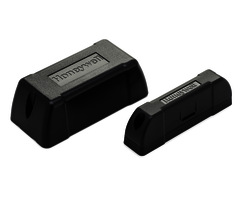Wireless Outdoor Fence Gate Alarm Sensors



When purchasing a wireless outdoor alarm sensor for your fence or gate, there are a number of factors that you should consider. For starters, you will want to make sure that the sensor you choose is compatible with your alarm system. It is also important that the sensor you select is capable of withstanding the weather in your area. Finally, you should also consider the wireless range that the device can operate away from the security system. Keeping these considerations in mind will ensure that you purchase the perfect wireless outdoor alarm sensor for your needs.
Most wireless outdoor contacts will communicate with the alarm system using RF signals. The frequency of these RF signals will determine what type of sensors can communicate with a system. Additionally, hardwired systems, like the panels in the Honeywell VISTA series, will require a separate wireless receiver in order to receive signals from a wireless sensor. Before you buy a wireless outdoor sensor, make sure that the one you choose is compatible with your security system. If you are ever not sure of compatibility, our support team is happy to help.
Since the contact will be used in an outdoor setting, it is very important that it is able to survive in the weather conditions that are present in your area. Most users will want an outdoor sensor to be able to properly deal with dust and and moisture so that it can continue to function for many years. Generally speaking, a contact designed for outdoor use will be tougher and more rugged than an indoor sensor. Most outdoor contacts include special rubber seals to prevent water from accessing the inside of the device and causing damage. Many users also choose to secure their outdoor sensors using cable ties or strap ties in addition to screws to ensure that they will not fly off in heavy winds.
Range is also an important consideration for a wireless outdoor contact. Since the alarm system will typically be inside the house, you will need to make sure that the signal from the outdoor sensor will reach the panel. Having to pass through thick walls may reduce the range of the sensor. If you find that the distance between the sensor and the panel is too far, you may be able to use a wireless repeater to extend the range. A wireless repeater is designed to repeat any signals that it picks up, essentially doubling the communication range of any compatible signal in the area. For example, if your wireless outdoor sensor has a range of approximately 200 feet, a wireless repeater will basically double that range to 400 feet.
Another great aspect of wireless outdoor alarm sensors is that they can be installed on a variety of different surfaces. This is very useful, due to the fact that fences, gates and outside doors are often constructed from various materials. Most manufacturers recognize this, and they work to ensure that their outdoor sensors will function when placed on almost any type of surface. For instance, the same wireless outdoor sensor that is used for a wooden fence will most likely also function on a metal gate, a vinyl door and a plastic shed. This is great if you ever need to move your sensor to a different type of opening.



